Peaceful transfer of power
The contentious election of 1800 ended a vision of politics without parties, but it set a precedent that was by no means inevitable
This essay was originally published as part of the Miller Center's First Year Project.
As the first American president to wrest power from an opposing party, Thomas Jefferson had to balance the demands of his fellow Republicans for radical change against the risk that extreme measures would revive the defeated Federalists. In particular, Jefferson had to decide whether to preserve or abolish key national institutions created by the Federalist administrations of George Washington and John Adams.
By preserving the Bank of the United States, honoring (but paying down) the national debt, and preserving (while shrinking) the navy and army, Jefferson conciliated moderate Federalists. By sharing credit with congressional leaders for successful legislation, Jefferson sustained his Republican coalition despite formidable factional tensions. By these two balancing acts, Jefferson consolidated his popularity through his first term, setting examples that any subsequent administration could profitably emulate.
If I could not go to heaven but with a party, I would not go there at all. Therefore I protest to you I am not of the party of federalists. But I am much farther from that of the Antifederalists.
Thomas Jefferson, to Francis Hopkinson, March 13, 1789
Americans celebrate Jefferson’s election to the presidency in 1801 for setting the great precedent of the peaceful transfer of power between rival political parties. That selective memory, however, slights the nation’s peril and constitutional crisis in early 1801, when the incumbent Federalists risked plunging the nation into civil war rather than surrender power to a despised opponent. Although Jefferson did win the presidency, the electoral crisis of 1801 informed his first year in office, when he sought to unite a bitterly divided nation while still altering federal policies to advance the philosophy of his own party. On the one hand, he offered soothing rhetoric and avoided a rapid and complete purge of federal office holders. On the other hand, he pushed Congress to reduce taxes, bolster civil liberties, and liberalize the naturalization of immigrants as citizens. Enhancing his popularity, he ruined the Federalist opposition, which rapidly declined into futility in national politics. By pursuing popularity as the font of republican power, Jefferson obtained leverage with Congress.
Electoral crisis
In the election returns of late 1800, Jefferson and his fellow Republican, Aaron Burr of New York, secured most of the electoral votes: 73 versus 65 and 64 respectively for the Federalists John Adams and Charles Cotesworth Pinckney. But Republican party discipline proved too good, for every one of their electors cast a vote for Jefferson and a second for Burr, leaving the two candidates tied in the Electoral College returns, at 73 each. Under the original terms of the Federal Constitution, the electors could not distinguish between votes for president and vice-president. That constitution also stipulated that, in the absence of a majority in the Electoral College, the House of Representatives would choose the president. But it would vote by state delegations with each state casting one equal vote, which meant that Jefferson needed to capture at least nine of the sixteen delegations. In early 1801, Republicans controlled eight delegations, the Federalists six, and two states were evenly split.
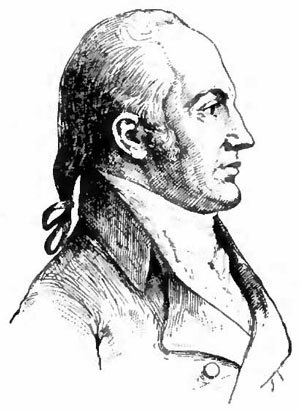
In the lame-duck Congress, the Federalists favored Burr, a clever opportunist who seemed open to making a deal. “It is much safer to trust a knave than a fool,” a Federalist reasoned to explain his preference for Burr over Jefferson. The Federalists hoped to entice the northern Republicans to defect from Jefferson and provide the winning margin to the New Yorker. If not, the Federalists hoped to sustain a prolonged deadlock until inauguration in March, when, in the absence of an elected president, they might govern through a president pro tempore chosen by the Senate.
Through six days and thirty-five votes, the House remained deadlocked at the end of Monday, February 16. To keep one side from exploiting any temporary absence of the other, the congressmen hunkered down in greatcoats on cots and had meals brought in. “We are resolved never to yield,” a Republican congressman explained.
During the bitter suspense, Federalists and Republicans muttered about preparing for civil war. A Pennsylvania Republican, John Beckley, warned that the day that the Federalists denied the presidency to Jefferson would be “the first day of revolution and Civil War.” The Republican governors of Virginia and Pennsylvania prepared to mobilize state militiamen to put Jefferson in office. If denied the presidency, Republicans also threatened to stage a constitutional coup by convening their own convention to rewrite the Federal Constitution along Republican lines.
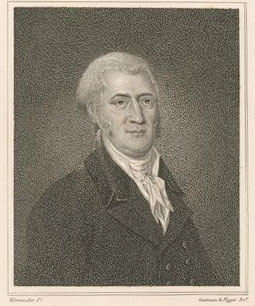
As the crisis dragged on, Federalists grew more uneasy for, as conservative nationalists, they dreaded disabling the federal government. Jefferson noted that they would “prefer yielding to the wishes of the people rather than have no government.” On Tuesday, February 17, a moderate Federalist, James Bayard, broke the deadlock in favor of Jefferson by abstaining. Bayard believed that he had Jefferson’s commitment to preserve the Federalist system of public finance, which included a national bank and a fully funded national debt. Bayard added that “it was admitted on all hands that we must risk the Constitution and a civil war or take Mr. Jefferson.” As Delaware’s only congressman, Bayard could swing an entire state, and his example inspired the Vermont and Maryland Federalists to give up the fight by also abstaining, swinging their states into Jefferson’s camp, giving him 10 delegations. Burr had to settle for the vice presidency and Jefferson’s bitter distrust. A relieved congressman noted that, had the Federalists denied the presidency to Jefferson, “What other result would follow but civil war?” In that event, “his head would not have remained on his shoulders for twenty-four hours afterward.”
Sobered by the constitutional crisis over the election, Republicans in the new congress crafted the Twelfth Amendment. Ratified by the states in 1804 in time for the next presidential election, the amendment obliged each member of the Electoral College to cast one vote for president and the other for vice president. Thereafter, the president and vice president would almost certainly belong to the same party. Where the framers of the Federal Constitution had sought to preclude partisan divisions, the Twelfth Amendment assumed their inevitability. Jefferson still hoped, however, “to obliterate the traces of party & consolidate the nation, if it can be done without abandonment of principle.” He later explained that a president’s primary duty was “to unite in himself the confidence of the whole people .... and point them in a single direction, as if all constituted but one body and one mind.”
[Jefferson] understood that a president’s power depends on sustaining popularity.
Jefferson overstated the possibility of uniting diverse Americans in one big consensus, but he understood that a president’s power depends on sustaining popularity. He rejected the approach of his Federalist predecessors, George Washington and John Adams, who regarded the presidency as meant to temper and control popular impulses manifest in Congress. Rather than react against and restrain congressional initiatives, as Washington and John Adams had done, Jefferson sought to rally public opinion as public capital and then to lead and goad Congress toward passing his program.
In his private correspondence, Jefferson indulged in provocative statements drawn from his political philosophy, but in office his pursuit of popular consensus compelled a careful attention to pragmatism. Shortly after taking office, he assured a political ally, “No more good must be attempted than the nation can bear.” During his first term in office, Jefferson displayed an uncanny sense of how much good the public could abide.
Distinctive style
In public statements, Jefferson struck a conciliatory tone, famously declaring in his first inaugural address, “We are all Republicans – we are all Federalists.” But Jefferson preached moderation as the means to ruin the Federalists forever. With soothing rhetoric, he wooed moderate voters to abandon their Federalist leaders, whom he privately considered as only “entitled to be protected & taken care of as other insane persons are.” He vowed “by the establishment of Republican principles,” to “sink Federalism into an abyss from which there shall be no resurrection for it.” Seeking “to render us again one people, acting as one nation,” Jefferson sought to build a national consensus on his terms.
To the dismay of more radical Republicans, Jefferson balked at purging all Federalists from federal office, for he cultivated a public image of moderation meant to lure soft Federalists into his growing majority. Regarding only the hardliners as “incurables,” he sought “to keep their flock from returning to them.” He tended to displace more Federalists from the army, where he feared their dominance over the officer corps. During the late 1790s, Federalist army officers had deployed troops to terrify and beat Republican critics in Pennsylvania, and the overall commander, Alexander Hamilton, had proposed invading Virginia to intimidate Jefferson’s supporters (fortunately President Adams had rejected that provocative advice). Always uneasy with a professional military as a threat to popular government, Jefferson especially sought reassurance after the close brush with civil war in early 1801. He replaced many Federalist officers or wooed moderates to embrace his new order in politics.
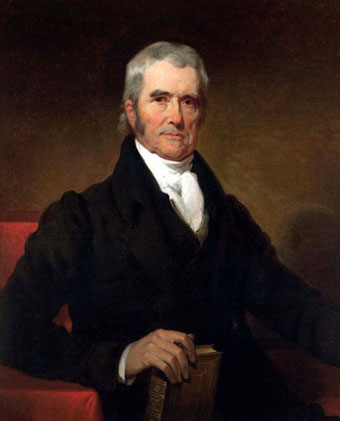
Jefferson also sacked those officials appointed by Adams in early 1801, after news of Jefferson’s election but before his inauguration. Denouncing such “midnight appointments,” Jefferson supplanted those who held office by the president’s discretion, but he could not replace the life-term judicial appointments, including the new chief justice, John Marshall. To counteract the lingering Federalist predominance in the judiciary, Jefferson appointed new federal marshals and district attorneys “as a shield to the Republican part of our fellow citizens.”
Jefferson shrewdly deployed political symbols and public performance to woo popularity. To show dependence on common voters, he eliminated the quasi-regal panoply of power favored by the Federalists. He abandoned the grand public receptions, known as “levees,” held weekly by Washington and Adams. Jefferson sold the presidential coaches with their silver harnesses and he refused to wear a sword on ceremonial occasions, breaking with Federalist precedents. Rather than exchange formal bows, as Federalist presidents did, Jefferson offered the familiarity of shaking hands to almost everyone he met. For exercise, he daily walked or rode through the muddy streets of Washington, D.C., unattended even by a servant. Shabby gentility became his fashion statement. A Federalist complained, “Jefferson is the supreme director of measures – he has no levee days – observes no ceremony – often sees company in an undress, sometimes with his slippers on – always accessible to, and very familiar with, the sovereign people.” A British diplomat complained that Jefferson pandered to “the low passions of a mere newspaper-taught rabble.” Ever since, Americans have accepted government by wealthy men so long as they pretend to have common manners.
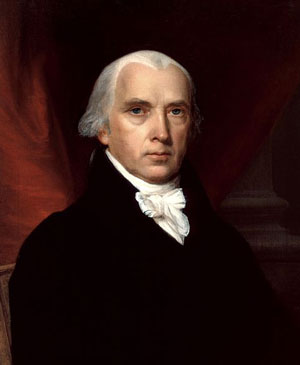
More pessimistic about human nature and popular support, Federalists had sought a style meant to impress the common people with the majesty of their leaders. The more optimistic Jefferson cleverly understood that true power derived from popularity that came from performing his subservience to the electorate. While he sought to weaken the federal government relative to the states, he meant to strengthen the executive within that federal government, for he understood his position as a tribune for the common people. While he reserved domestic issues to the states, he jealously guarded federal supremacy, and particularly executive power, in foreign policy. “The conduct of foreign affairs is executive altogether,” he had declared as Secretary of State during the early 1790s.
As president, Jefferson meant to guide his “official family,” his small staff and the cabinet officers, rather than leave them alone to work with Congress, as his Federalist predecessors had usually done. By consulting them early and often, Jefferson cultivated collegiality and taught the department heads to adhere to the consensus that he elicited from their meetings. Jefferson also vetted all substantive communications from the department heads in order to master the information and intervene as needed. In managing his cabinet, Jefferson benefitted from his close friendship with James Madison, who occupied the key position as secretary of state. Their close and harmonious relationship set a tone best emulated by the other department heads. The administration was also fortunate to have Albert Gallatin of Pennsylvania as the Secretary of Treasury, for he nearly matched Hamilton’s financial acumen while offering superior political wisdom.
To get things done, Jefferson shrewdly gave credit to Congress for the success of his policies.
Popularity gave Jefferson leverage with congressmen to push his agenda behind the scenes. Unlike the stiff and aloof Washington and Adams, Jefferson carefully cultivated congressional leaders through a stage-managed cycle of dinner parties at the White House. To promote equality and informality, he substituted round tables for the Executive Mansion’s rectangular ones. Smaller gatherings of about a dozen highlighted Jefferson’s seductive personal qualities for soothing disagreement and cultivating support. He had mastered a genial but polite affability that evaded contention while drawing upon his immense intellectual versatility for clever conversation. He usually entertained Republicans and Federalists separately to avoid disagreement. Plus, he served excellent food and wine. Jefferson also benefitted from being the biggest fish in the small pond of Washington, D.C. sociability—in marked contrast to Washington’s administration, which had to adapt to the high society of its cosmopolitan capitals: New York and Philadelphia.
Although Jefferson could charm congressmen, he could not command them. He later rued, “A forty years’ experience of popular assemblies has taught me, that you must give them time for every step you take. If too hard pushed, they balk, and the machine retrogrades.” Jefferson and his cabinet took pains to show deference to Congress as the voice of the people. To get things done, Jefferson shrewdly gave credit to Congress for the success of his policies.
Popular policies
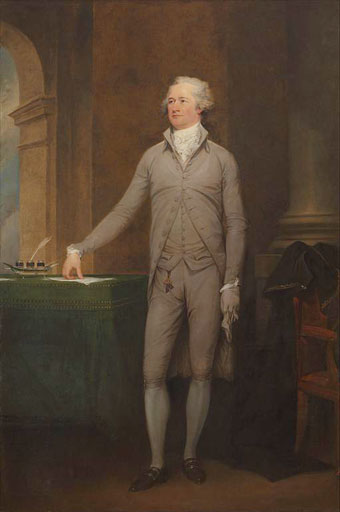
While cultivating an aura of moderation, Jefferson pursued policies meant to bolster popular sovereignty by dismantling the elitism of his Federalist predecessors. Jefferson argued that federal officials should heed public opinion and tolerate public criticism. In 1798 the Federalists had imposed a Sedition Law to criminalize public criticism of federal office holders. They also adopted Alien Laws meant to discourage immigration, particularly from Ireland. On the eve of his inauguration, Congress allowed the Sedition Act to expire, while Jefferson quickly pardoned those convicted under that law. To reward their immigrant supporters, Republicans in Congress reduced the period of naturalization to five years from the punitive 14 years mandated by the Federalists in 1798.
The victorious Republicans halted the Federalist drive to build a powerful national government. Instead they favored a decentralized union that entrusted to the states all responsibilities except foreign affairs, customs collection, a barebones military, and the postal service. Jefferson’s inaugural address promised a “wise and frugal” government that would “restrain men from injuring one another” and then “leave them otherwise free to regulate their own pursuits.” Jefferson dreaded a peacetime military establishment because its great “expenses and the eternal wars in which it will implicate us, [will] grind us with public burthens, & sink us under them.” By cutting the army and navy, Republicans could abolish the unpopular excise and land taxes levied by the Federalists. Jefferson also tried to pay down the national debt that the great Federalist financier, Hamilton, had designed for perpetuity. During their 12 years in power, the Federalists had increased that debt from $76 million to $83 million; during his eight years as president, Jefferson reduced it to $57 million.
Jefferson had political debts to pay in the West, where he swept the electoral votes from Kentucky and Tennessee, and the Republicans had secured every congressional seat. A frustrated Federalist, Roger Griswold, noted the symbolism in Jefferson’s rearrangement of the White House: “When Mr. Adams was President, the door of the president’s House opened to the East. Mr. Jefferson has closed that door and opened a new door to the West.” Where Federalists had treated settlers as “white savages” who needed elite mentors, Republicans celebrated them as industrious farmers who redeemed a wilderness through hard work. Jefferson’s administration promoted retail sales of federal land to common settlers by reducing the minimum tract to 160 acres, offering a credit of four years, and opening three new land offices in the west.
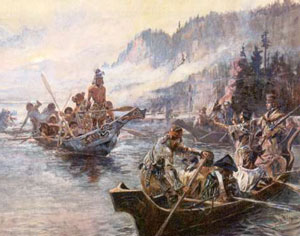
Jefferson promoted an “Empire of Liberty,” which favored white men at the expense of Indians and blacks. A democratic but racially defined society would expand relentlessly westward, creating thousands of new farms to sustain relative equality among white men. Jefferson recognized that the strength of a diffuse nation lay in helping, rather than hindering, ambitious settlers. Jefferson’s empire depended on consent from the majority, which he imagined as white men bearing an irresistible republican culture featuring the common law, juries, civil liberties, and elections. Affection rather than force would tether westerners to the union.
The new president will seek sustained popularity and will carefully cultivate support in Congress through sociability.
In 1804 voters rewarded Jefferson’s moderate, public tone and his populist policies. He won reelection in a landslide, with George Clinton of New York as his running-mate, replacing Burr. Jefferson and Clinton captured 162 of the 176 electoral votes, and carried every state except Connecticut and Delaware. Republicans also secured super-majorities in the House, 116 Republicans to just 25 Federalists, and the Senate, 27 versus 7. Never again would Federalists recover the presidency or a majority in either house of Congress. But the Republican hegemony bore some bitter fruit. No longer adhered together by fear of the Federalists, the Republican congressmen could indulge in factional divisions over patronage and policies, weakening the cohesion that Jefferson had so painstakingly developed during his first term. Although ever enticing, consensus remains elusive in any two-party system of government.
What lessons, then, does Jefferson’s first presidential year offer for the next president more than 200 years later? We can hope that she or he will carry the Electoral College, avoiding the divisive spectacle of selection by the House of Representatives. Thanks to Jefferson’s shrewd precedents, reinforced by the practice of his successors, the new president will seek sustained popularity and will carefully cultivate support in Congress through sociability. If truly deft, that president will cling to an aura of moderation while securing legislation to deliver on her or his political philosophy.
Resources
- Ackerman, Bruce, The Failure of the Founding Fathers: Jefferson, Marshall, and the Rise of Presidential Democracy (Cambridge: Harvard University Press, 2005).
- Cogliano, Francis D., Emperor of Liberty: Thomas Jefferson’s Foreign Policy (New Haven: Yale University Press, 2014).
- Cunningham, Nobel E., Jr., The Process of Government under Jefferson (Princeton: Princeton University Press, 1978).
- Dunn, Susan, Jefferson’s Second Revolution: The Election Crisis of 1800 and the Triumph of Republicanism (Boston: Houghton Mifflin Co., 2004).
- Ferling, John, Adams vs. Jefferson: The Tumultuous Election of 1800 (New York: Oxford University Press, 2004).
- Freeman, Joanne B., “Corruption and Compromise in the Election of 1800: The Process of Politics on the National Stage,” in James Horn, Jan Ellen Lewis, and Peter S. Onuf, eds., The Revolution of 1800: Democracy, Race, and the New Republic (Charlottesville: University of Virginia Press, 2002): 87-120.
- Johnston, Robert M., Jr., Jefferson and the Presidency: Leadership in the Young Republic (Ithaca, N.Y.: Cornell University Press, 1978).
- Larson, Edward J., A Magnificent Catastrophe: The Tumultuous Election of 1800, America’s First Presidential Campaign (New York: Free Press, 2007).
- McDonald, Robert M.S., “The (Federalist?) Presidency of Thomas Jefferson,” in Francis D. Cogliano, ed., A Companion to Thomas Jefferson (Chichester, U.K.: Wiley-Blackwell, 2012): 164-83.
- Onuf, Peter S., Jefferson’s Empire: The Language of American Nationhood (Charlottesville: University of Virginia Press, 2000).
- Pasley, Jeffrey L., “1800 as a Revolution in Political Culture: Newspapers, Celebrations, Voting, and Democratization in the Early Republic,” in James Horn, Jan Ellen Lewis, and Peter S. Onuf, eds., The Revolution of 1800: Democracy, Race, and the New Republic (Charlottesville: University of Virginia Press, 2002): 121-52.
- Simon, James F., What Kind of Nation: Thomas Jefferson, John Marshall, and the Epic Struggle to Create a United States (New York: Simon & Schuster, 2002).
- Taylor, Alan, “The Alien and Sedition Acts,” in Julian E. Zelizer, ed., The American Congress: The Building of Democracy (Boston: Houghton Mifflin Co., 2004): 63-76.
- White, Leonard D., The Jeffersonians: A Study in Administrative History, 1801-1829 (New York: Macmillan Co., 1956)
- Wood, Gordon S., Empire of Liberty: A History of the Early Republic, 1789-1815 (New York: Oxford University Press, 2009).
Featured Video
Thomas Jefferson and John Adams: The partnership that helped birth a nation
The relationship between Thomas Jefferson and John Adams was one of the most consequential in American history. Eminent historian Gordon Wood discusses his book, Friends Divided: John Adams and Thomas Jefferson.
